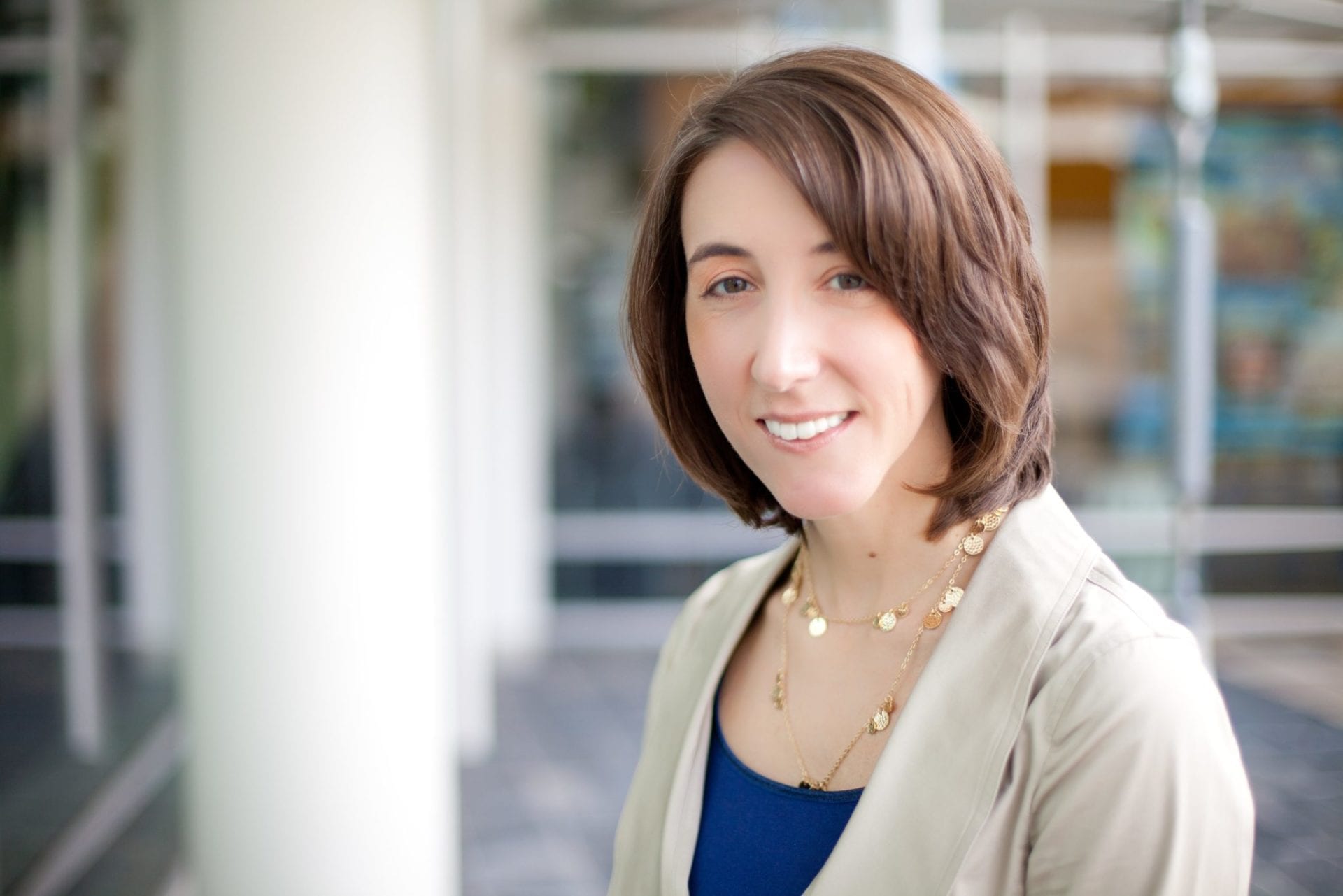“Why are you taking Physics?” asked Jeni Panhost’s friends during her senior year of high school. For many years, Jeni had wanted to become a graphic designer. She was taking multiple art classes with her fellow art-loving friends, yet she was also taking AP Physics, Calculus, and other STEM-related classes.
“They’re asking the right question,” Jeni thought to herself. “Why am I taking these classes?”
The truth was Jeni really enjoyed learning about the STEM fields, and had ever since she was a kid. At age 10, she visited her aunt and uncle in Oregon who had founded one of the earliest education technology companies. During her visit, she worked at their company, doing simple tasks such as assembling electrical component kits. As Jeni got older, she got to work directly with the engineers, and even started writing code as a teenager. It was a fun experience that allowed her to get a glimpse of what it’s like working in the tech industry.
Jeni had always admired her aunt’s and uncle’s passion for their tech company. But her friends’ question made her realize she was just as passionate about the tech field, too. At age 17, Jeni decided that, while she would still keep art as a hobby, she would major in computer engineering.
Becoming an Advocate
Just as Jeni knew she wanted a job in the tech field, she also knew she wanted a job where she could make a difference. “I saw my aunt’s and uncle’s passion for their cause, for serving schools,” she explained. “My experience with them was instrumental in establishing the importance of having a mission behind the work I do.”
One cause Jeni is passionate about is supporting other women in tech, something she claims she became an advocate for “by accident.”
“I went to the Grace Hopper Celebration 10 years ago, and it allowed me to see what people were going through,” she explained. While some of the women had similar stories as Jeni, others had completely different and sometimes worse experiences. Many of the women she spoke to had faced bullying, harassment, or discrimination in the workplace. Although Jeni says she personally has never faced any of these problems, she was determined to take action and solve them.
“Just because you don’t experience something like this doesn’t mean you can’t be an advocate,” she stated.
Intel
Jeni is now the Senior Director of Strategic Planning & Program Management at Intel, a company that likewise shares her desire to promote diversity. Intel was one of the first tech companies to release diversity data, encouraging other companies to do the same. In 2015, the CEO even announced an investment of $3 million on an initiative to reach gender parity by 2020.
Eager to help her company promote diversity, Jeni became a coach for Intel’s program to integrate new senior women employees. The program focuses on not only hiring more senior women but retaining them as well. Retaining female workers is a challenge for many tech companies, as women leave the field at twice the rate of men. Many of these women leave due to a lack of a supportive and inclusive culture.
“Isolation is a problem for women technologists. It’s hard to feel comfortable if they don’t know where they fit in,” Jeni explained. “So many women are hindered from being the best they can be because they’re not empowered. That’s why inclusivity programs are so important.”
Key to Happiness
On top of coaching Intel’s senior women program, Jeni is also the General Co-chair for this year’s Grace Hopper Celebration (GHC). She has volunteered for this event since 2009, considering GHC a valuable resource for gaining confidence and support.
“GHC is a great place to develop relationships and gain a sense of belonging,” she explained, calling both factors “key to creating a sense of happiness.” She pointed out that GHC not only allows women to meet new people but also allows them to not worry about being the minority. “It’s pretty amazing to walk into GHC where 90% of the attendees are women,” she stated.
Jeni hopes programs like GHC will help women gain confidence and not be afraid to push themselves forward in their careers. “Being hard on yourself is a great quality that drives us to do better. But if you let it limit you, that’s when it turns into a negative quality.
“The way we learn best is by doing,” she continued. “If you’re at a stage where you’re looking to grow, the only way is by taking on things that scare you.”













コメントを残す
コメントを投稿するにはログインしてください。